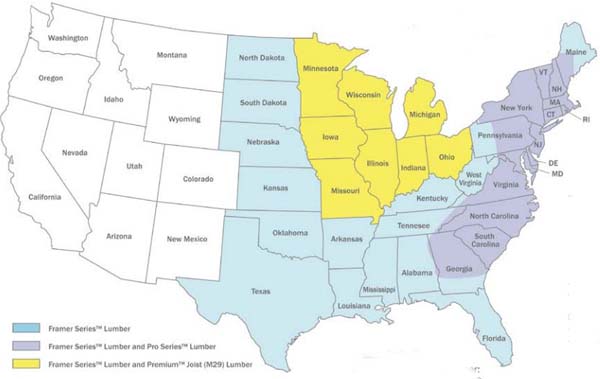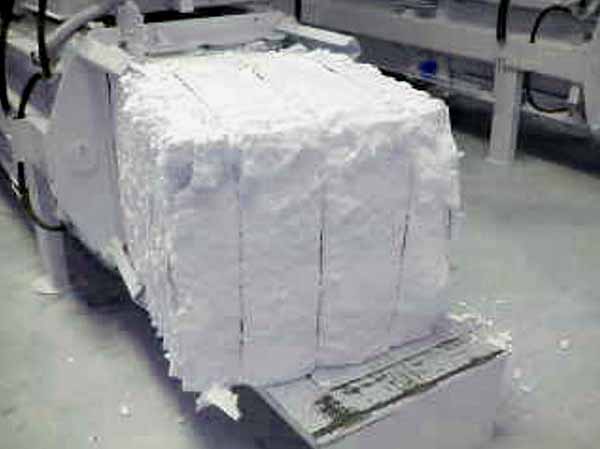Weyerhaeuser Emerson Receives New Entrance Required for $14 Million Investment
![]() Print this Article | Send to Colleague
Print this Article | Send to Colleague
According to a report this week by the Magnolia Report, Magnolia, Ark., USA, the reconstruction of a portion of Columbia County Road 14 has been completed. Work was finished this past week on the road from U.S. 79 to the Weyerhaeuser mill in Emerson.
The Emerson facility, as well as the company's other locations in Arkansas, process lumber as part of a regional resource network for the company in the Southern U.S., producing a number of different products. Arkansas' plywood and wood product facilities create a larger, and thus more affordable (as long as demand meets Weyerhaeuser needs) lumber operation helping the company maintain its existing paper mills, though the company has moved to phase out most traditional paper production. The company's paper mills, with the exception of the liquid packaging plant and NORPAC cooperative venture in Longview, Washington, have been converted for production of cellulose fibers such as absorbent fluff pulp used in diapers according to the USDA U.S. Forest Service (Washington, D.C.).

Pictured: A map of the U.S. shows Weyhaeuser's dominant lumber resource market spanning from the Mid-west throughout the Southeast and the East Coast. The company's four converted cellulose fiber mills are located within this area, while the company's remaining liquid packaging plant and traditional paper mill reside outside of this area in Longview, Washington.
This corporate resource diversification works to maintain profitability as demand has fallen in recent years for newsprint and P&W paper, a former cornerstone of the company. But Weyerhauser is not alone. Many former paper companies have had to find ways to adapt and/or downsize.
In the South, this resource network of lower-cost, higher volume lumber processing and transport supplies the company's sawmills, plywood production, and wood product manufacture throughout Arkansas as well as the cellulose fiber production facilities eastbound from Mississippi, to Georgia (home of two cellulose fiber facilities), and North Carolina.

Photo: Weyhaeuser's potentially versatile cellulose fiber mills are currently being used to produce the absorbent fluff pulp pictured above. The material used in diapers is currently popular not only because of an increasing population, but also a larger retiring generation that is beginning to feel comfort through the use of adult incontinence products.
The county was awarded a $212,480 grant for the project from the State of Arkansas, and an additional $3,500 from the Arkansas Economic Development Commission’s General Improvement Fund. In addition, the county committed $60,013 toward the project.
The total cost was less nearly a thousand dollars under the initial $275,000 estimate, amounting to a total of $275,993, in a reassuring demonstration from Weyerhaeuser to Columbia County that their estimates would not go over anticipated cost for the company's lack of interest in pursuing additional demands in an era of commonly revised and increasing costs for such projects.
A quarter-mile stretch of the county road to the plywood mill was strengthened and widened to the mill, which employs about 245 people, an increase from 2014. Cammie Hambrice, executive director of the Magnolia Economic Development Corp., said the company may now make an additional planned $14 million investment, hiring up to eight additional employees and further bolstering the overall size of Weyerhaeuser's lumber network.
A quarter-mile stretch of the county road to the plywood mill was strengthened and widened to the mill, which employs about 245 people, an increase from 2014. Cammie Hambrice, executive director of the Magnolia Economic Development Corp., said the company may now make an additional planned $14 million investment, hiring up to eight additional employees and further bolstering the overall size of Weyerhaeuser's lumber network.


